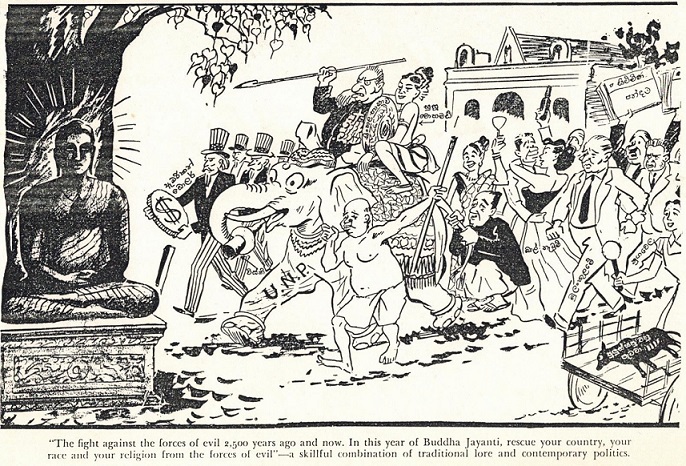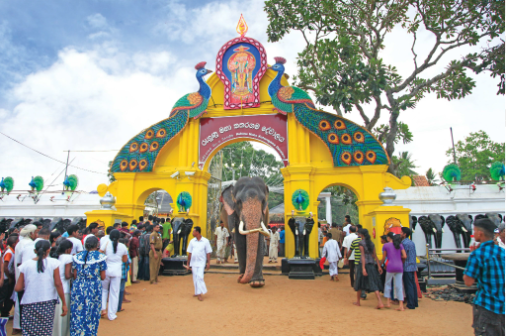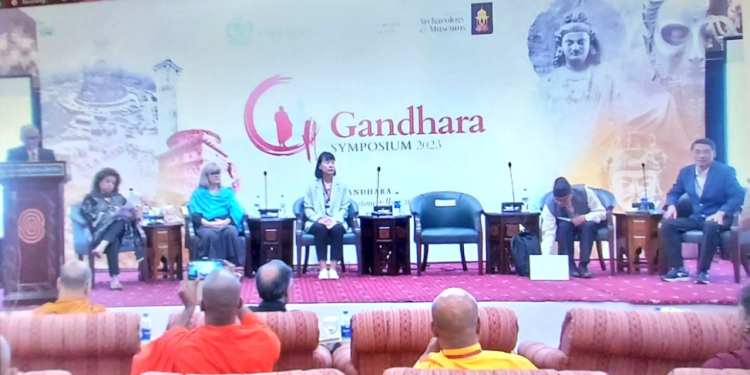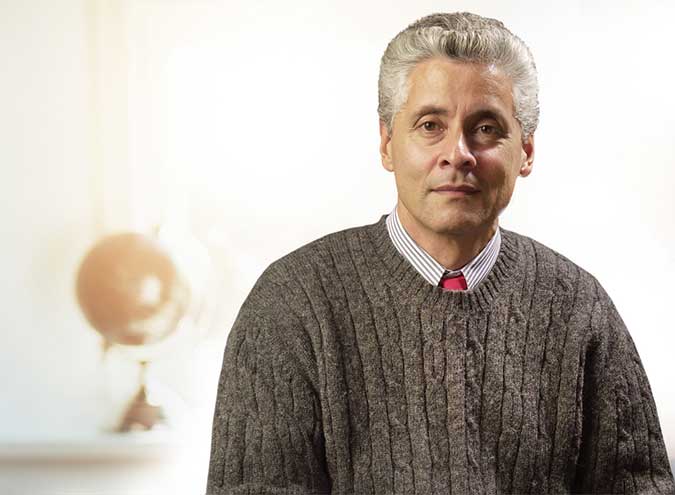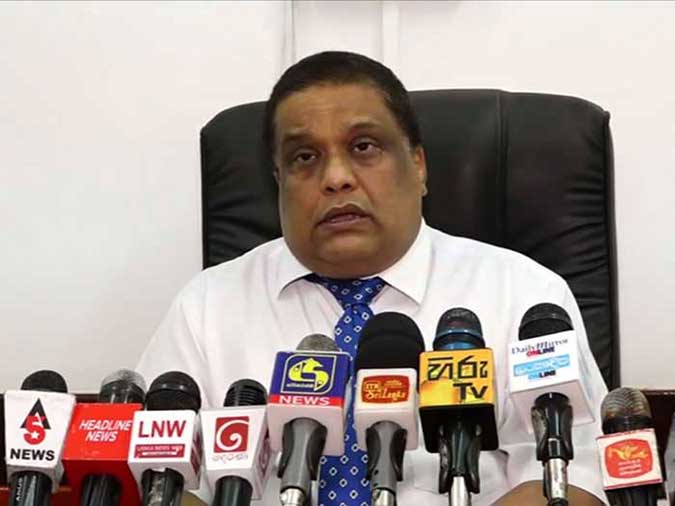New research shines a light on Sri Lanka fireflies
July 15th, 2023Courtesy Mongabay
Until recently, there had been a significant absence in research on Sri Lanka’s fireflies; previous work was by British scientists a couple hundred years ago, but now a new surge in research has led to new findings in the pipeline for publication.- Recent research has led to the rediscovery of Luciola nicolleri, a firefly not seen since its description 100 years ago, and Curtos costipennis, a new discovery in Sri Lanka.
- Glowworms are the larval stage of fireflies, and folklore has it that once stung by them, treatment would require mud from the depths of the ocean and stars from the sky, indicating a difficult cure — shot down by experts as myth, confirming fireflies do not harm human life.
- A beautiful and common sight just a decade ago, fireflies are fast disappearing from urban landscapes due to loss of habitat, increasing temperatures and pollution levels, affecting their reproduction signals in the form of bioluminescent lights.
COLOMBO — Fireflies, with their bioluminescent rears, are fascinating species that appeal to people’s imaginations, especially those of children. In Sri Lanka, the first systematic study of fireflies was carried out by British naturalists in the 18th century, but afterward, there was a loss of interest in studying these fascinating creatures.
Shedding new light on Sri Lanka’s firefly fauna, researchers and at least one enthusiastic amateur continue to study them today, resulting in several discoveries. Sri Lanka is home to 16 firefly species, while Abscondita perplexa and Asymmetricata humeralis are more common and show a countrywide distribution. In 2022, research on A. humeralis conducted by Dammika Wijekoon and Hemantha Wegiriya of the University of Ruhuna showed that male A. humeralis can look different in color and pattern, highlighting that there can be more secrets in the world of fireflies to be investigated.
Wijekoon and Wegiriya initiated their study on fireflies in 2009 and have already made several significant discoveries. In 2010, the researchers recorded Curtos costipennis for the first time in Sri Lanka, making it the first firefly member of the genus Curtos found in Sri Lanka.
Their study in 2022 re-recorded Luciola nicolleri after a lapse of 100 years. The species was first described in 1922. L. nicolleri has not been recorded since its discovery, a highly significant finding as it was considered possibly extinct.
The studies further showed that fireflies prefer terrestrial grassland habitats and Uva province, where 11 species out of the 16 are found, has a role to play in their conservation. Both Sabaragamuwa and Southern provinces, too, have a rich firefly diversity, according to this study.
Fireflies are soft-bodied, light-emitting insects classified under the family Lampyridae. There are about 2,000 firefly species in the world and most of them can emit light through a chemical process using an enzyme produced in their body.
Each species has different intensities and patterns of light, and this phenomenon usually happens in twilight as a mechanism that is used by female fireflies to attract a partner, said Wijekoon, one of the co-authors of the study.
The enzyme involved in light production is called luciferases and when this reacts to oxygen, it begins to flash. Scientists also believe that fireflies can control the frequency and intensity of flashing by controlling the oxygen levels to the light-producing organs.
Sri Lankans know another species that emits light, but they are not flying and have a worm-like appearance: glowworms. People often consider glowworms to be distinct, not knowing that it is the larval stage of the firefly, Wijekoon told Mongabay.
Glowworms mainly feed on small snails and slugs, first injecting venom to immobilize the prey. This habit has given the creature a scary reputation, where folklore has it that if stung by a glowworm, treatment would require mud from the oceans and stars from the sky, indicating the difficulties in treatment. Glowworms also have a neurotoxin venom similar to that of some snakes, but their mouths are very small, and the venom released is negligible.

Shashi Prabath, a teacher at Vidyaloka Science Institute, is fascinated by the study of fireflies. He continues to study them and is trying his best to rear them. To pursue the factual status of the local myth, Prabath even wanted to be bitten by a glowworm.
I tried to get bitten by one of them, but the glowworm didn’t bother initially, However, after I applied slime on my finger, I did get bitten. But it was like an ant’s bite and only a little pain, which reduced after a few hours,” Prabath added.
Prabath also tries to rear fireflies from the stages of eggs and has successfully managed to raise them. He is currently working on a research paper.
A field guide that can be used to identify firefly species with a description of their behavior could be the first step in popularizing firefly studies among the public interested in this charismatic insect, he said. Taking the first step, Wijekoon published the book Fireflies of Sri Lanka,” which is the first-ever comprehensive book on the taxonomy and ecology of fireflies in Sri Lanka, addressing the long-felt need and research gap in firefly literature in the country.
The book contains species names, information on males and females, identification characters, ecological remarks, active time periods, distributions and larval and egg characteristics wherever available. This book offers the first-ever detailed description of the systematics and ecology of Sri Lankan fireflies.

Firefly tourism is also popular in many other regions. For example, Research on nature tourism shows increased interest among nature-based tourists in firefly tourism. Sri Lanka has the potential to look at such tourism possibilities as some of the pristine sites still harbor a healthy population of fireflies,” Wijekoon said.
Nighttime river safaris could be an ideal way of observing fireflies without disturbing the natural vegetation, experts say. Some countries like the U.S. have species that have synchronized lighting, which provides a spectacular scene. Much is still unknown about Sri Lanka’s firefly fauna, Wijekoon said.
Decades ago, fireflies were a common sight that brought much joy to children, adding magic to the twilight hours — but this has become a thing of the past in many areas, especially in urban gardens. Not only the loss of suitable vegetation, but light pollution, too, is a major contributor to the decrease in firefly populations, said Wijekoon.
When there are too many outdoor lights, fireflies fail to communicate with each other, and firefly reproduction cycles take a hit. In addition, the fireflies need moisture, but the soil is getting increasingly dry. Pesticide use is another factor that contributes to the decline of fireflies.
Wijekoon is also a member of the IUCN Species Survival Commission Firefly Specialist Group and said it is important to focus on conservation of these charismatic insects. To highlight the need for action, the first weekend of July is declared World Firefly Day by the International Firefly Network.
Citations:
De Silva, D. R., Wijekoon, D., Sandun Nalaka Bandara, K. V., & Wegiriya, H. (2022, June). Re-record of Luciola nicolleri (Coleoptera: Lampyridae: Luciolinae) from Sri Lanka. Paper presented at International Firefly Symposium, Parque Biologico de Gaia, Portugal.
Wijekoon, C., Wegiriya, H., & Bogahawatte, C. (2021). Distribution, Diversity and Relative Abundance of Fireflies (Coleoptera; Lampyridae) in Three Habitat Types in Sri Lanka. Rajarata University Journal. Retrieved from http://repository.rjt.ac.lk/bitstream/handle/123456789/3600/Distribution,%20Diversity%20and%20Relative%20Abundance%20of%20Fireflies%20(Coleoptera;%20Lampyridae)%20in%20Three%20Habitat%20Types%20in%20Sri%20Lanka.pdf?sequence=1
Wijekoon, D., & Wegiriya, H. (2022). Fireflies of Sri Lanka. Malabe, Sri Lanka: Sarasavi Publishers (Pvt) Ltd.
Lewis, S. M., Thancharoen, A., Wong, C. H., López‐Palafox, T., Santos, P. V., Wu, C., … Reed, J. M. (2021). Firefly tourism: Advancing a global phenomenon toward a brighter future. Conservation Science and Practice, 3(5). doi:10.1111/csp2.391

